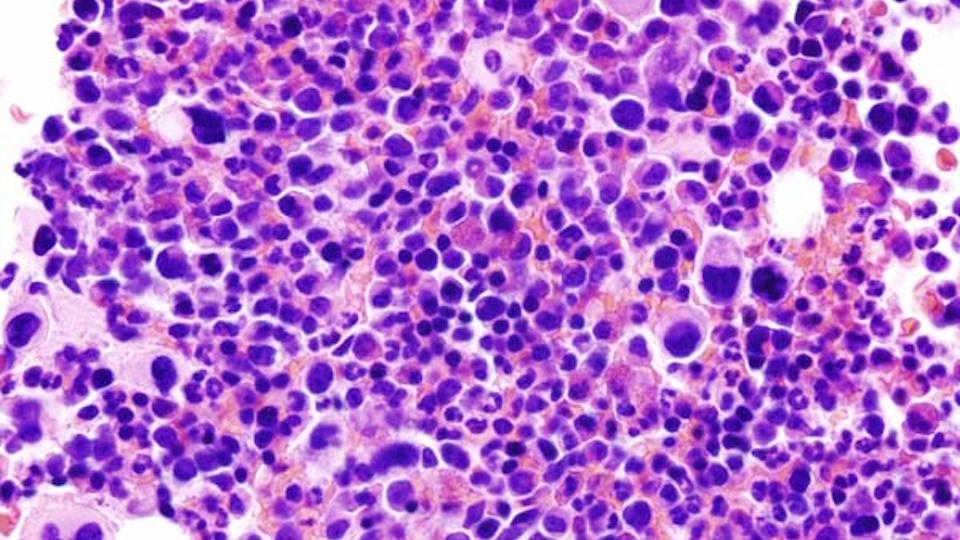MSD starts second phase 3 of Imago drug for blood cancers

Histopathological image representing a bone marrow aspirate in a patient with essential thrombocythemia
MSD has kicked off a new phase 3 trial of its oral LSD1 inhibitor bomedemstat in essential thrombocythaemia (ET), one of a rare type of blood cancer known as myeloproliferative neoplasms (MPNs).
The Shorespan-007 study is recruiting patients with ET – which causes high levels of platelets to form in the blood – who have not been previously treated with cytoreductive therapy to reduce their numbers. It will be compared to hydroxyurea, the standard first-line cytoreductive therapy.
ET is the most common type of MPN and puts patients at risk of serious complications, including stroke, heart attack or pulmonary embolism. The disease, which is more common in women than men and in older individuals, is estimated to affect fewer than 200,000 people in the US.
LSD1 is thought to play a role in the maturation of blood cells in the bone marrow and acts as a driver for ET and other MPNs.
Bomedemstat was the main asset in MSD's $1.35 billion acquisition of Imago BioSciences, which closed last year, one of a series of bolt-on deals the company has embarked upon to build its pipeline and prepare for the loss of patent protection for cancer blockbuster Keytruda (pembrolizumab) – which accounted for 40% of its pharma sales last year – in 2028.
It was also part of a drive to build a franchise in haematology, particularly in blood cancers, where it has several drugs in clinical development. One of those haematology drugs – Winrevair for pulmonary artery hypertension (PAH), which was acquired as part of the company's $11.5 billion takeover of Acceleron in 2021 – was approved in the EU earlier this week
MSD is already running the phase 3 Shorespan-006 trial of the drug in ET patients who have an inadequate response to or are intolerant of hydroxyurea, comparing it to a range of other alternatives, including anagrelide, busulfan, interferon alfa, and Incyte's Jakafi (ruxolitinib).
The company – known as Merck & Co in the US and Canada – has orphan drug and fast-track status from the FDA for bomedemstat in ET, as well as myelofibrosis (MF), as well as orphan status for acute myeloid leukaemia (AML). Analysts at Stifel have previously said it could make peak annual sales of $750 million from the ET indication alone.
"The standard of care in essential thrombocythemia has remained unchanged for decades," said Dr Gregory Lubiniecki, head of global clinical development at Merck Research Laboratories.
"Patients are in need of new options that have the potential to not only improve disease control, but also improve their quality of life," he added.
Other LSD1-directed therapies in clinical development include Oryzon Genomics' Iadademstat, Jubilant Therapeutics' JBI-802, and Exscientia's EXS74539. Bristol-Myers Squibb was developing a candidate called pulrodemstat but this no longer appears in its R&D pipeline.











